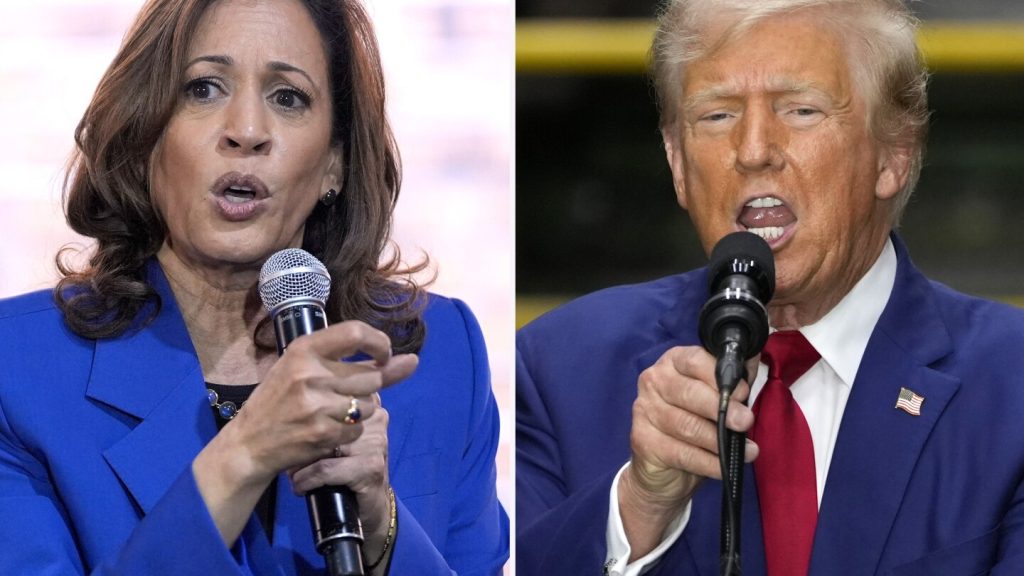Donald Trump and Kamala Harris are set to meet in Philadelphia, recognizing the critical importance of winning Pennsylvania in the upcoming presidential election. Pennsylvania, a swing state that has determined the outcome of the past two elections, is expected to be closely contested once again in November. Both candidates have been actively campaigning in the state, as a loss here could make it challenging to secure enough electoral votes to win the presidency. Democrats are particularly motivated to win Pennsylvania, as no Democratic nominee has won the White House without carrying the state since 1948.
Trump supporters in Pennsylvania are aiming to counter his unpopularity in the state’s liberal suburbs by criticizing the Biden administration’s economic policies. They hope to leverage their base to vote by mail and reduce the Democrats’ advantage in early voting. On the other hand, Kamala Harris is focused on reconstructing the coalition that propelled Joe Biden to victory, including college students, Black voters, and women who are passionate about protecting abortion rights. Her strategy involves winning big in Philadelphia and its suburbs, while narrowing Trump’s support among white voters in rural and small-town Pennsylvania.
The upcoming debate between Trump and Harris in Philadelphia carries historical significance, given the city’s Democratic stronghold and Trump’s past controversial remarks about the state. Biden’s 2020 victory in Pennsylvania was attributed to his success in Philadelphia and the surrounding suburbs, where he received strong support. Harris aims to build on this momentum by addressing issues such as inflation, prescription drug costs, child care affordability, and homeownership incentives. Democrats are optimistic about Harris’s chances in Pennsylvania, especially given the enthusiasm generated since she entered the race following Biden’s withdrawal.
Both parties are actively courting voters in Pennsylvania, with Republicans emphasizing concerns about the economy and public safety, and Democrats focusing on expanding their base among women, Black voters, and disenchanted former Trump supporters. While Harris faces criticism for her past support of a fracking ban, she has since clarified her position on clean energy goals. Despite the shrinking Democratic advantage in voter registration rolls, recent gains by Republicans have not yet translated into electoral victories in statewide contests. The upcoming election remains highly competitive, with many voters still undecided on their choice for president.
As the campaign unfolds, Harris is working to introduce herself to voters who may still be unfamiliar with her background and policies. The upcoming debate between Trump and Harris could play a pivotal role in shaping undecided voters’ perceptions and influencing the outcome of the election. With Pennsylvania being a crucial battleground state, both candidates are intensifying their efforts to secure support from key demographics and communities. The race in Pennsylvania reflects the broader national political landscape, with economic issues, social policies, and candidate personalities all playing a significant role in shaping voter preferences.


